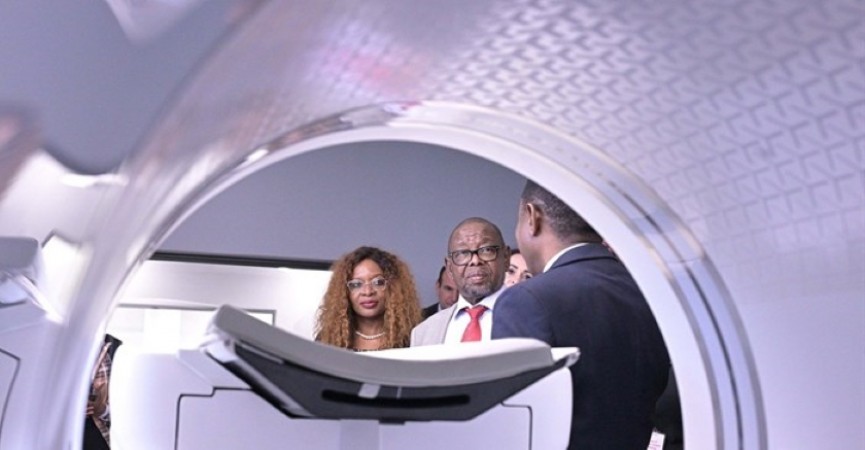
The African continent's first comprehensive nuclear medicine hub, the Nuclear Medicine Research Infrastructure (NuMeRI), has been officially inaugurated at the Steve Biko Academic Hospital in Pretoria. This pioneering facility is dedicated to advancing nuclear medicine training and research across Africa.
NuMeRI, a non-profit company affiliated with the University of Pretoria’s nuclear medicine department, aims to revolutionise cancer diagnosis, treatment, drug development, and clinical research with its state-of-the-art imaging equipment.
Lerato Makgae, South Africa’s national liaison officer to the International Atomic Energy Agency (IAEA), announced that the IAEA will designate NuMeRI as a regional “anchor centre” in early June. These anchor centres are pivotal in providing radiotherapy training to medical fellows across their regions. Makgae highlighted the challenges many African countries face in managing cancer, including resource shortages, skill gaps, and the lack of adequate medical physicists and curricula.
NuMeRI President Mike Sathekge revealed ongoing and upcoming collaborations with institutions in Nigeria, Ghana, Mauritius, Zambia, Namibia, Senegal, and Ethiopia. Additionally, Makgae noted that NuMeRI will be recognized as an IAEA Collaborating Centre for Nuclear Medicine and Radiotherapy, along with the iThemba Labs, which collaborates with the IAEA on nuclear instrumentation. The iThemba Labs' particle accelerators in Cape Town produce the radioisotopes used by NuMeRI for medical treatments.
The Department of Science and Innovation described NuMeRI as a “one-stop shop” for imaging and therapy. It is equipped with two cyclotrons—one for commercial use and one for research—integrated with two radiopharmacies. Since 2020, the department has invested 390 million rand (US$21.4m) in NuMeRI, with an additional R85m allocated to the University of Pretoria for constructing the facility. The initial phase of NuMeRI, established at the South African Nuclear Energy Corporation, cost R150m between 2016 and 2019.
Minister of Higher Education, Science, and Innovation, Dr Blade Nzimande, highlighted the long-standing cooperation with the European Union (EU) since 2012, which facilitated the development of South Africa’s first Research Infrastructure Roadmap (SARIR). Dr. Nzimande expects this infrastructure to significantly increase the number of clinical and basic science PhDs in South Africa.
To date, NuMeRI has seen 20 Masters and 15 PhD students complete their studies, with an additional 17 Masters and 22 PhD students nearing completion. The facility's research activities align with the National Department of Health’s objectives, strengthening nuclear medicine capabilities within South Africa and across the continent. NuMeRI also enhances South African research in medicinal chemistry, expediting the development of drugs for diseases like cancer and tuberculosis, thus giving South African pharmaceutical development a competitive edge globally.
“The opening of this facility represents yet another important milestone in the development of scientific infrastructure for our country, and this is embodied in the fact that NuMeRI is the first of its kind on the African continent,” Dr Nzimande stated.
The inauguration of NuMeRI marks a new era in nuclear medicine research and training, poised to address critical health challenges and foster scientific excellence across Africa.
Article by Nyokabi Wanjiku
Photo/Google

Comment